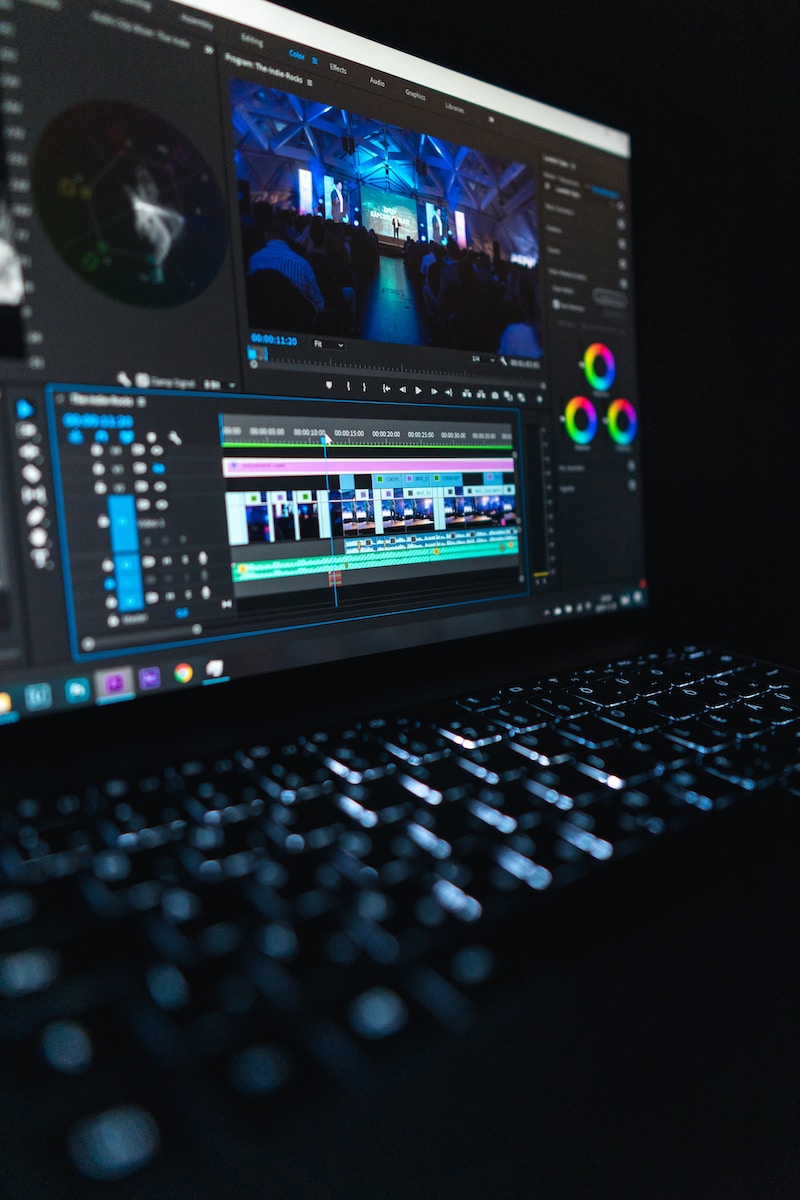Last Updated on: 22nd November 2023, 03:10 pm
The world of online video content creation has witnessed an explosive growth in recent years, with platforms like YouTube becoming a treasure trove of educational material. Whether you’re a teacher looking to share your knowledge or a student aiming to enhance your learning experience, creating high-quality videos is essential. However, one common challenge faced by content creators is shaky video footage, which can detract from the overall quality of your educational content. In this article, we’ll explore the importance of video stabilization for educational content creators and discuss effective methods and tools to achieve it. Moreover, if you are interested in checking the video editor for YouTube then click the link.
Why Video Stabilization Matters
Imagine watching a lecture or tutorial video that constantly jitters and shakes. It’s not only distracting but can also make it difficult to focus on the content being presented. For educational content creators, video stabilization is a crucial aspect of delivering a seamless and engaging learning experience. Here are some reasons why video stabilization matters:
-
Professionalism
Stabilized videos convey a sense of professionalism. They show that the creator has put effort into delivering quality content, which can enhance the credibility of the information being presented.
-
Improved Viewer Engagement
Shaky footage can be exhausting to watch. Stable videos are more comfortable for viewers, encouraging them to stay engaged with the content for longer periods.
-
Enhanced Clarity
Stabilized videos make it easier for viewers to follow along with on-screen demonstrations, diagrams, or text, enhancing the clarity of the educational material.
-
Reduced Motion Sickness
Shaky videos can induce motion sickness in some viewers, making it imperative to stabilize footage to ensure inclusivity.
Online Video Editor for YouTube
Before diving into the specifics of video stabilization, it’s essential to mention the role of online video editors for YouTube creators. These tools play a significant role in helping content creators bring their vision to life. They offer a wide range of features, including video trimming, text overlays, effects, and more. Many content creators rely on these editors to streamline their video production process, making it more efficient and accessible.
One such online video editor, which we’ll refer to is CapCut YouTube video editor, offers a range of features that are particularly valuable for educational content creators. This editor allows users to easily add subtitles, transcribe videos, and incorporate text overlays, making it a valuable asset for those looking to create educational content.
Now, let’s delve into the specifics of online video stabilizer and how it can benefit educational content creators.
The Importance of Stabilizing Educational Videos
Educational videos often involve detailed explanations, diagrams, and screen captures, which can be challenging to follow when the video is shaky. Here’s why video stabilization is crucial for educators:
-
Enhanced Focus on Content
Stabilized videos ensure that viewers can focus on the educational material being presented rather than being distracted by shaky camera movements.
-
Better Learning Experience
Students and learners benefit from a smoother, more enjoyable viewing experience. This can lead to improved retention and understanding of the material.
-
Professionalism
High-quality, stable videos create a professional image for educators, which can boost their reputation in the online education space.
Methods of Video Stabilization
Now that we understand why video stabilization is essential let’s explore various methods to achieve it:
-
Hardware Stabilization
Hardware solutions involve using physical tools or equipment to stabilize the camera during recording. This includes the use of tripods, gimbals, or Steadicams. While these methods can be highly effective, they may not always be practical, especially for content creators on a budget or those who need to move around during filming.
-
Software-Based Stabilization
Software-based stabilization methods are more accessible to the average content creator. These techniques leverage advanced algorithms to analyze the video and reduce the effects of camera shake. One such method involves using video editing software that offers stabilization features.
-
Online Video Stabilization Tools
For educational content creators who prefer a hassle-free approach, online video stabilization tools can be a game-changer. These tools, accessible directly through a web browser, offer a user-friendly way to stabilize videos without the need for specialized software or technical expertise.
How to Stabilize Your Educational Videos Online
Online video stabilization tools provide an easy and effective way to stabilize your educational videos. Here’s a step-by-step guide to achieving smooth, stable footage using such a tool:
-
Step 1: Upload Your Video
Begin by uploading your shaky video to the online stabilization tool. You can typically do this by clicking on an “Upload” or “Browse” button on the tool’s website.
-
Step 2: Let the Tool Work Its Magic
Once your video is uploaded, the online tool will automatically apply its stabilization algorithm. This process may take a few moments, depending on the length and complexity of your video.
-
Step 3: Preview the Stabilized Video
After the stabilization process is complete, you’ll usually have the option to preview the stabilized video. Take this opportunity to ensure that the shakiness has been effectively reduced and the video looks smoother.
-
Step 4: Download the Stabilized Video
If you’re satisfied with the results, you can proceed to download the stabilized video. Save it to your computer or device, ready to be shared with your audience.
Conclusion
As an educational content creator, delivering high-quality and engaging videos is paramount. Video stabilization plays a crucial role in achieving this goal, as it enhances professionalism, viewer engagement, and overall clarity. While there are multiple methods for achieving video stabilization, online tools offer a convenient and accessible solution for educators. By following the simple steps outlined in this guide, you can create stable, polished educational videos that captivate and inform your audience, ultimately elevating your online teaching or learning experience.




